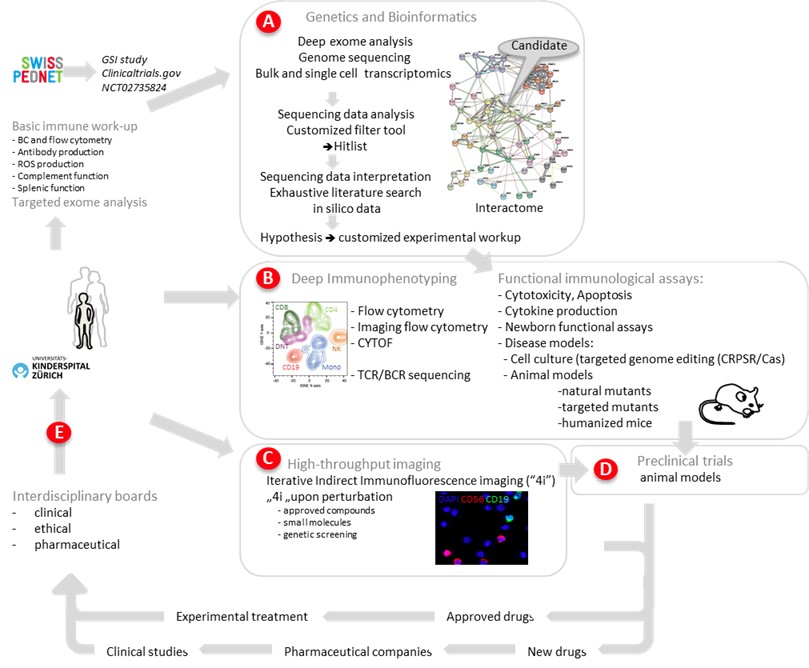LoF mutations - Hemophagocytic Lymphohistiocytosis
Hemophagocytic Lymphohistiocytosis (HLH) includes a group of genetic disorders of lymphocyte cytotoxicity predisposing to a severe multisystem inflammatory syndrome. Immune stimulation, e.g. following infections, is poorly controlled, leading to excessive activation of T cells and macrophages and a life-threatening cytokine storm. Deficiency of cytotoxicity is either caused by deficiency of perforin or defects in the degranulation of perforin-containing granules. Current treatment, which aims at eliminating or suppressing activated immune cells, followed by hematopoietic stem cell transplantation, shows around 30-40% mortality. Outcome depends on a large extent on whether complete remission can be achieved before transplant. Recently, more targeted therapies directed at neutralization of cytokines, for which we have performed decisive preclinical studies, have been evaluated, but it remains unclear whether they will be sufficient to timely and reliably induce complete remission.
Our aim is to better characterize the pathogenesis and find new targets to control the hyperinflammatory state in patients with HLH by (i) characterizing a novel genetic cause for HLH; (ii) establish high content imaging workflow for the visualization of synapses between cytotoxic lymphocytes and target cells, including visualization of cell death; (iii) perturbation of cytotoxic synapses using repurposing libraries and (iv) testing the potential benefit of modulating cytotoxic synapses in mouse models.
Figure 1. Schematic representation of the established workflow for accelerating the discovery and translation of treatments for monogenic immune diseases: (A) Detection of novel monogenic diseases using high-throughput genetics and in-house developed software tools, (B) Phenotypic and functional characterization, (C) Chemical and genetic perturbation in high-content imaging, (D) Preclinical trials, (E) Personalized treatment of individual patients.
